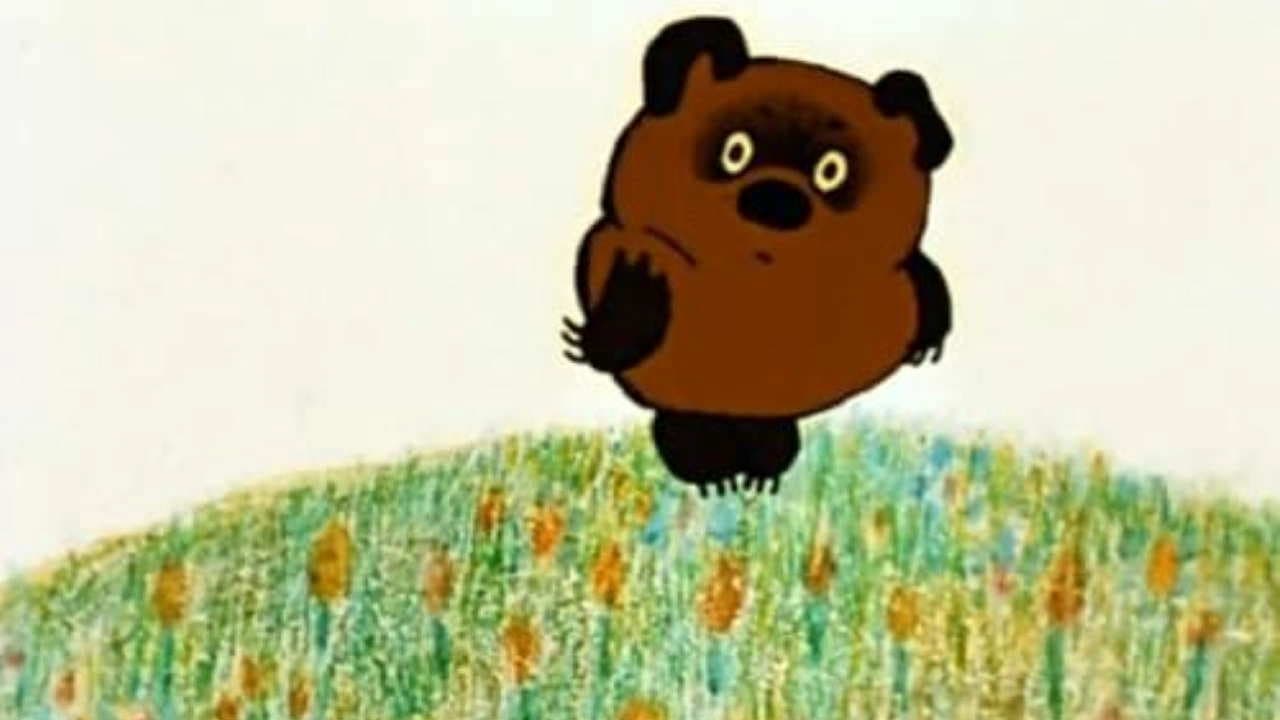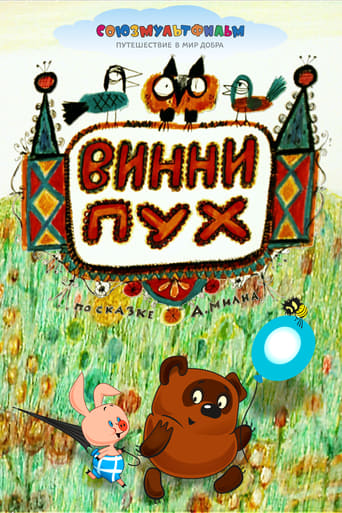Curapedi
I cannot think of one single thing that I would change about this film. The acting is incomparable, the directing deft, and the writing poignantly brilliant.
Livestonth
I am only giving this movie a 1 for the great cast, though I can't imagine what any of them were thinking. This movie was horrible
Billie Morin
This movie feels like it was made purely to piss off people who want good shows
Sanjeev Waters
A movie that not only functions as a solid scarefest but a razor-sharp satire.
punishmentpark
I can't really compare this to any other version of Winnie the Pooh, simply because I haven't seen any of them, except for maybe a few prints on some of my mother's tea mugs...But Vinni-Pukh is just wonderful, as a cartoon and as a character. He is an energetic little bear with nothing between his torso and feet, who sturdily chants his songs (still in the making, a lot of the time) while skipping through the woods, getting into small adventures. I've seen three episodes, and I'm afraid there aren't any more. Vinni-Pukh's close friend Pyatachok is a great character also, the rabbit and donkey Eeyore. The owl was my least favorite, but since she brought back Eeyore's tail...The animations are colorful, fresh and invigorating, the story lines simple, but with plenty of room for melancholy and clever musings. I'd say it's suitable for children anyway, because these more mature elements never predominate.Recommended for anyone! A big 8 out of 10.
ackstasis
Animators in the Soviet Union never really cared about copyright. Their work was typically destined to be released only in their own country, and so there seemed little reason to bother with gaining permission from the likes of Dr. Seuss {as in Alexei Karaev's 'Welcome (1966)'} or A.A. Milne. Fyodor Khitruk's series of animated Winnie the Pooh adaptations was not the first, Wolfgang Reitherman at Disney having already directed two shorts several years earlier, but they are nonetheless well-remembered by Russians who grew up watching the cartoons on television. With a cheeky, down-to-earth charm that appeals to both children and adults, the series – beginning with 'Vinnie-Pukh (1969)' – has since developed something of a cult following, and are considered by many to decisively surpass their Disney counterparts, however uneasily they may fit into the official canon. The animation itself is somewhat coarse and minimalistic, but this all adds to the charm of it all, with the story and characters coming to life as though they have just stepped out of a picture-book.The first film runs just 11 minutes in length, and follows the efforts of Winnie and Piglet to steal precious honey from a hive of fiercely territorial bees. Demonstrating a keen sense of creativity, Winnie decides to borrow a blue balloon from Piglet's home, the idea being that, after the balloon carries him to the top of the oak tree, the bees will mistake the balloon for a piece of sky, and Winnie for a darkened rain cloud. It was a good idea… in theory. One doesn't usually associate Winnie the Pooh with intelligence, but the Russian version does exhibit a sharp sense of wit, and Evgeni Leonov brings a wonderful amount of humour and character to his voice-acting. Piglet (or Pyatachok, voiced by actress Iya Savvina) is placed cute and innocent, enthusiastically submitting to Winnie's every command, and occasionally lamenting at the loss of his beloved blue balloon. For fans of Soviet animation, or animation in general, 'Vinnie-Pukh' is a charming and witty moving storybook.
tavm
Having just read Amid on Cartoon Brew about this Russian animated version of Winnie the Pooh, I just had to click on the YouTube link to see if Woolie Reitherman was right about this one being better than his for Disney. It certainly is! While I was often charmed by Sterling Holloway's voice in the Disney version, hearing the lines spoken from the former Soviet Republic and listening to the original songs from the old country brings such an otherworld feeling that I can't help thinking how livelier the Russian version was compared to the conventional American take of an English author's tale. Only Pooh and Piglet are in this story of the bear flying in a balloon with Piglet trying to get him down with his pop rifle while bees surround the stuck-in-the-air bear! No Christopher Robin which makes the story better! And great abstract-like drawings gives this short more individual personality than the more faithful-to-original-drawings one from Disney (though the Disney shorts have their own charm). Well worth seeing for international animation buffs.
superperson1
I don't mean to generalize, but if you really want to get some sense of the difference between Russian and American animation (with many many exceptions, obviously), just compare this phenomenal Vinni Pukh with the wretched Disney Winnie the Pooh. The Disney one is sentimental, pandering, unsophisticated, and dumb. Winnie himself lethargically stumbles along like a middle-aged man with a developmental disability. Vinni, however, is vigorous, adventurous, and witty. He's sly and he has attitude. He is no longer a disposable "silly old bear," he is a worthy protagonist. Pyatachok is not a pathetic, feathery-voiced ball of pink. He is vibrant and fun, and their friendship, so beautifully rendered by Milne and made sappy and idiotic by Disney, is here authentic and moving once again. Soviet animation at its best.

